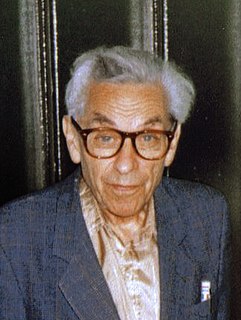A Quote by Ross Honsberger
Paul Erdos has a theory that God has a book containing all the theorems of mathematics with their absolutely most beautiful proofs, and when he wants to express particular appreciation of a proof he exclaims, "This is from the book!"
Related Quotes
It is a matter for considerable regret that Fermat, who cultivated the theory of numbers with so much success, did not leave us with the proofs of the theorems he discovered. In truth, Messrs Euler and Lagrange, who have not disdained this kind of research, have proved most of these theorems, and have even substituted extensive theories for the isolated propositions of Fermat. But there are several proofs which have resisted their efforts.
Mystery is an inescapable ingredient of mathematics. Mathematics is full of unanswered questions, which far outnumber known theorems and results. It's the nature of mathematics to pose more problems than it can solve. Indeed, mathematics itself may be built on small islands of truth comprising the pieces of mathematics that can be validated by relatively short proofs. All else is speculation.
What exactly is mathematics? Many have tried but nobody has
really succeeded in defining mathematics; it is always something
else. Roughly speaking, people know that it deals with numbers,
figures, with relations, operations, and that its formal procedures
involving axioms, proofs, lemmas, theorems have not changed
since the time of Archimedes.
What is especially striking and remarkable is that in fundamental physics, a beautiful or elegant theory is more likely to be right than a theory that is inelegant. A theory appears to be beautiful or elegant (or simple, if you prefer) when it can be expressed concisely in terms of mathematics we already have. Symmetry exhibits the simplicity. The Foundamental Law is such that the different skins of the onion resemble one another and therefore the math for one skin allows you to express beautifully and simply the phenomenon of the next skin.
Mathematicians are proud of the fact that, generally, they do their work with a piece of chalk and a blackboard. They value hand-done proofs above all else. A big question in mathematics today is whether or not computational proofs are legitimate. Some mathematicians won't accept computational proofs and insist that a real proof must be done by the human hand and mind, using equations.
For every Book of Job, there's a Book of Leviticus, featuring some of the most boring prose ever written. But if you were stranded on a desert island, what book would better reward long study? And has there ever been a more beautiful distillation of existential philosophy than the Book of Ecclesiastes?
Blindness to the aesthetic element in mathematics is widespread and can account for a feeling that mathematics is dry as dust, as exciting as a telephone book... Contrariwise, appreciation of this element makes the subject live in a wonderful manner and burn as no other creation of the human mind seems to do.
Write what you want to read. So many people think they need to write a particular kind of book, or imitate a successful style, in order to be published. I've known people who felt they had to model their book on existing blockbusters, or write in a genre that's supposed to be "hot right now" in order to get agents and publishers interested. But if you're writing in a genre you don't like, or modeling yourself on a book you don't respect, it'll show through. You're your first, most important reader, so write the book that reader really wants to read.
You will want a book which contains not man's thoughts, but God's - not a book that may amuse you, but a book that can save you - not even a book that can instruct you, but a book on which you can venture an eternity - not only a book which can give relief to your spirit, but redemption to your soul - a book which contains salvation, and conveys it to you, one which shall at once be the Saviour's book and the sinner's.


































